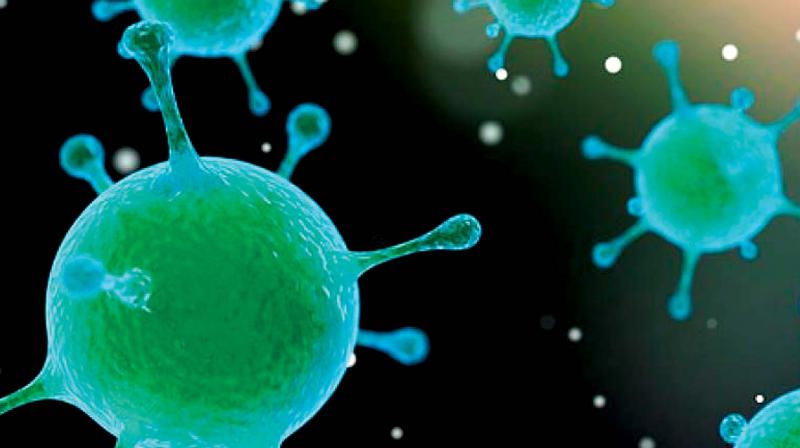Lack of awareness behind rise in hepatitis cases

CHENNAI: Hepatitis - the second biggest killer viral infection after tuberculosis - is preventable, treatable and even curable in case of hepatitis C, reads a WHO report. Despite the treatable nature of this disease, 325 million people around the world have been affected by this disease and it is responsible for staggering 1.4 million deaths around the world.
The major reason for this could be the lack of awareness amongst people say, doctors. "Most commonly people mistake their symptoms as flu instead of hepatitis," says Dr Harikumar R Nair, senior consultant, hepatologist & liver transplant physician, Gleneagles Global Health City.
Hepatitis refers to inflammation of the liver caused by drugs and alcohol abuse or toxins in the environment. Fat built-up in the liver and autoimmune disorders can also cause hepatitis. Commonly caused by a group of hepatitis viruses - A,B,C, D,E , the disease is usually classified as acute and chronic. "acute hepatitis can be cured in less than six months while chronic hepatitis usually pertains for long periods of time." explains Dr.Chandan Kumar, Consultant hepatologist and liver transplant physician, Kauvery hospital, Chennai.
"While hepatitis A and E are water and food-borne diseases, hepatitis B and C are transmitted through blood and body fluids or during pregnancy. Hepatitis D, on the other hand, can be considered as the 'sister virus' of hepatitis B virus and occurs in patients with hepatitis B.", says Dr.Chandan Kumar, elaborating on the various classes of hepatitis viruses.
"The five hepatitis viruses can be transmitted in different ways, but they all have one thing in common: They infect the liver and make it swell up. Many people with acute hepatitis recover with lifelong immunity to the disease, but some people with hepatitis die in the acute phase (Fulminant liver failure). Hepatitis B and C may progress to chronic hepatitis, in which the liver remains inflamed for a decade or more. This can lead to cirrhosis, liver cancer, and sometimes death" explains Dr Harikumar R Nair.
Symptoms of acute viral hepatitis include flu-like symptoms, fatigue, dark urine, fever, vomiting and jaundice (yellow discolouration of skin and white of the eye).in rare cases, viral hepatitis can cause "fulminant liver failure"- a drastic decline of liver function in a short span of hours to days resulting in death.
However, chronic hepatitis commonly caused by Hepatitis B and C viruses presents itself with very few symptoms. They remain in the body and cause irrevocable damage and are often diagnosed only in advanced stages.
Hepatitis A and E are usually 'self-limiting' and require only supportive treatment, while the other three forms might require medical treatment and vaccination.
Timely diagnosis and treatment play an important role in eradicating the virus, say doctors. Since the virus attaches itself to human DNA and replicates, treatment primarily involves controlling the replication. Speaking about the treatment available for HBV AND HCV Dr Harikumar R Nair says, "It takes a decade and more after entry of the virus into body to evolve these lethal complications, which means a wide window of opportunity, is there to treat and clear the virus provided the infection is detected early."
Classifying hepatitis B as the deadliest amongst the five classes, Dr.Chandan Kumar says," Hepatitis B, if identified during carrier stage can be cured easily. but if in the active stage, it requires immediate medical attention."
Medications, tablets and injections are available for the treatment of both HBV and HCV. Due to medical advancements, the conventional one year long injectable medicines for HCV has been replaced by oral medications and duration of treatment shortened to only 12 weeks.
Another common misconception about hepatitis is that all forms of hepatitis are contagious. "Many people mistakenly think that hepatitis means viral hepatitis and that all forms of hepatitis are contagious," says Dr Harikumar R Nair.
Hepatitis can be prevented by practising proper personal hygiene, avoiding consumption of outside food and vaccination( against hepatitis A and B).
Highlighting the importance of vaccination Dr.Chandan Kumar says," Hepatitis is a disease deadlier than AIDS as it has no cure. However, this can be prevented by a simple vaccination.

